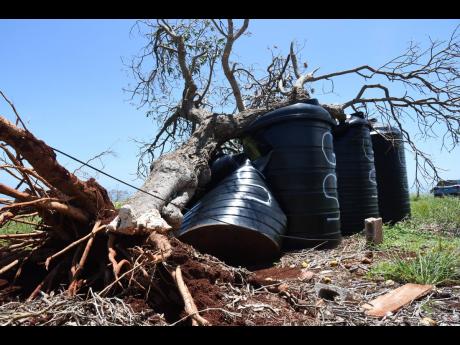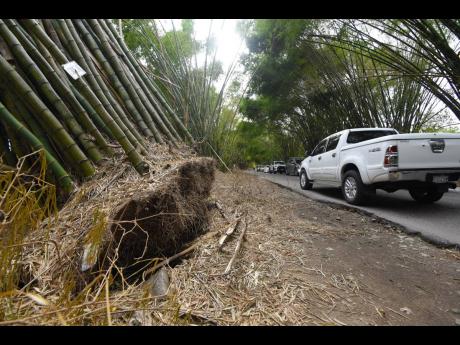Earth Today | Climate resilience a must for Jamaica
THERE IS an urgent need to address the climate crisis, especially for countries like Jamaica that depend heavily on tourism and agriculture.
The looming threat of more frequent floods, hurricanes, and other disasters present substantial risks to these vulnerable sectors, as well as to communities. Therefore, it is crucial that swift and unified action be taken to effectively mitigate these risks.
While it may be tempting to attribute blame solely to powerful nations, Jamaica must acknowledge its own responsibility in adopting and mitigating climate risks.
This necessitates a thorough review of existing laws, identifying those in need of amendment and those requiring stricter enforcement. Addressing local environmental challenges is the first step towards contributing to global solutions. Responsibility, indeed, starts at home.
The recent impact of Hurricane Beryl has starkly exposed Jamaica’s vulnerabilities, particularly in rural areas such as St Elizabeth, Westmoreland, Manchester, Portland, St Thomas, and Clarendon. Although some parishes were spared a direct hit, the potential devastation if they were affected is sobering.
The aftermath highlights the dire need for proactive leadership, capable of anticipating and mitigating future disasters. Initiatives like the catastrophe bond offer reactive responses, but true resilience demands proactive policies that prioritise community safety and livelihood protection. The agricultural sector, crucial to Jamaica’s social safety net, faces significant threats from climate-related losses, particularly in rural communities like St Elizabeth, where farmlands were devastated.
Policies enhancing agricultural resilience and supporting affected communities are critically needed. Climate financing must be coupled with policy reforms reflecting Jamaica’s realities, prioritising sustainable, long-term solutions through robust resource allocation for disaster risk reduction, emergency-response training, and public awareness campaigns.
Drawing inspiration from global best practices, such as China’s underground utility infrastructure and Japan’s resilient building codes, we must ask: How can Jamaica adopt these visionary policies to effectively combat climate change?
China’s approach of burying electric wires underground minimises damage during natural disasters, ensuring continuity of essential services. Similarly, Japan’s stringent building standards withstand earthquakes and typhoons, facilitating rapid recovery. These examples underscore the pivotal role of proactive measures in mitigating disaster impacts.
As Caribbean nations, including Jamaica, confront escalating climate threats, the imperative to bolster resilience grows more urgent. By embracing visionary leadership and implementing proactive disaster preparedness strategies, Jamaica can mitigate future impacts and build a safer nation for all its citizens.
Strategic planning, innovative policy development, and robust community engagement are critical components of this transformative journey. Jamaica has the opportunity to lead by example in the Caribbean region, demonstrating that proactive environmental stewardship can yield sustainable development and resilience against climate change.
Together, let us take the lead in forging a path towards a resilient future, where Jamaica thrives in harmony with its environment and secures the future for generations to come.
Devaraine Rowe is vice chairperson, Caribbean Regional Youth Council and Lead Membership and Engagement Officer, Commonwealth Youth Peace Ambassadors Network.



